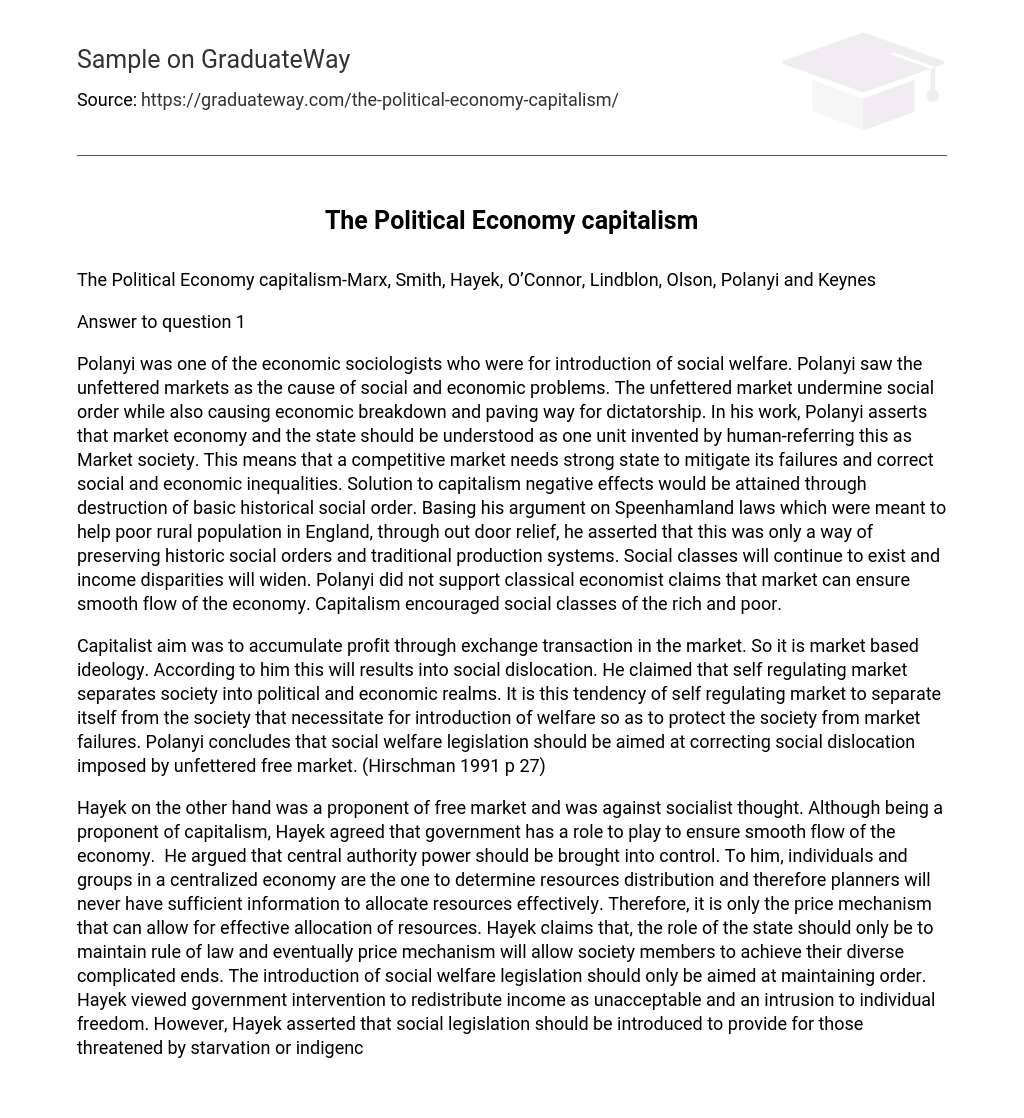Polanyi was one of the economic sociologists who were for introduction of social welfare. Polanyi saw the unfettered markets as the cause of social and economic problems. The unfettered market undermine social order while also causing economic breakdown and paving way for dictatorship.
In his work, Polanyi asserts that market economy and the state should be understood as one unit invented by human-referring this as Market society. This means that a competitive market needs strong state to mitigate its failures and correct social and economic inequalities. Solution to capitalism negative effects would be attained through destruction of basic historical social order.
Basing his argument on Speenhamland laws which were meant to help poor rural population in England, through out door relief, he asserted that this was only a way of preserving historic social orders and traditional production systems. Social classes will continue to exist and income disparities will widen. Polanyi did not support classical economist claims that market can ensure smooth flow of the economy. Capitalism encouraged social classes of the rich and poor.
Capitalist aim was to accumulate profit through exchange transaction in the market. So it is market based ideology. According to him this will results into social dislocation. He claimed that self regulating market separates society into political and economic realms. It is this tendency of self regulating market to separate itself from the society that necessitate for introduction of welfare so as to protect the society from market failures. Polanyi concludes that social welfare legislation should be aimed at correcting social dislocation imposed by unfettered free market. (Hirschman 1991 p 27)
Hayek on the other hand was a proponent of free market and was against socialist thought. Although being a proponent of capitalism, Hayek agreed that government has a role to play to ensure smooth flow of the economy. He argued that central authority power should be brought into control. To him, individuals and groups in a centralized economy are the one to determine resources distribution and therefore planners will never have sufficient information to allocate resources effectively.
Therefore, it is only the price mechanism that can allow for effective allocation of resources. Hayek claims that, the role of the state should only be to maintain rule of law and eventually price mechanism will allow society members to achieve their diverse complicated ends. The introduction of social welfare legislation should only be aimed at maintaining order. Hayek viewed government intervention to redistribute income as unacceptable and an intrusion to individual freedom. However, Hayek asserted that social legislation should be introduced to provide for those threatened by starvation or indigence only
Hayek and Polanyi had room for introduction social legislation. Polanyi asserted that the effects of unfettered competitive market are the main cause social dislocation. In his case, social dislocation will include high levels of income inequalities, and distributive injustice characterized by very poor and rich individuals. Existence of dictatorial central authorities will prevail. Society will be separated into political and economic realms. In such an economy social welfare legislation should be introduced to combat this.
The society will have to react to these dislocations through social welfare legislation. Hayek on the other hand, assert that, introduction of social welfare legislation should be based on evidence of threats of famine and starvation, cases of poverty and any other threat to basic life of human.( Hirschman 1991 )
Work Cited
- Hirschman, A. The Rhetoric of Reaction: Perversity, Futility, Jeopardy. Harvard University Press. (1991)
- Hirschman, A. The Passions and the Interests: Political Arguments for Capitalism before Its Triumph. Princeton University Press. (1997)





